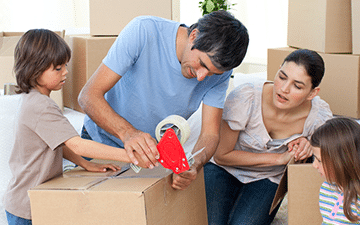Most of all, try to accept and acknowledge all of your children’s feelings, concerns and attitudes and take the good with the bad. Let your children know that it is okay to feel anxious, worried or angry. While adults tend to focus on the practical aspects of a move, children of most ages will be more inclined to focus on all the losses that the move will bring. To your child, the loss of friends and familiar surroundings also comes with the loss of a sense of belonging. Expressing an understanding of their problems, however trivial it may seem in the bigger picture, can go a long way to help your children face the changes ahead.

“My main advice would be that parents should recognise the significance of the move for children, and that it can feel very difficult and frightening for a child.”Dr. Katherine Edward DClinPsych, Ph.D., MA, AFBPsS. Chartered & Clinical Psychologist (dredward.co.uk)










